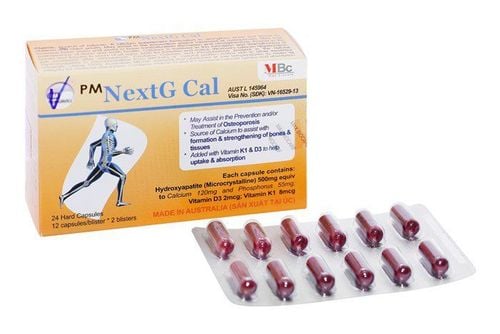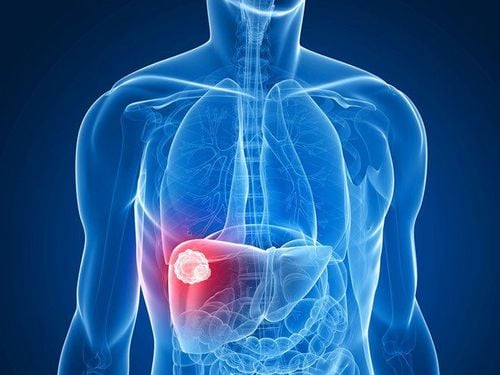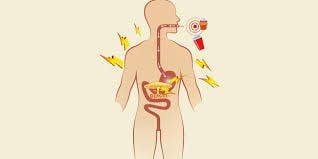This is an automatically translated article.
Metabolism in humans is the process of converting nutrients into energy for the body to function. This is a natural process, however there are a number of factors that make it slower than usual. Here are 15 factors that overwhelm it.
1. Genetic factors
Metabolism is how our body converts food into energy. If your metabolism slows down while you rest or sleep, it could be due to genetic factors that we are inheriting from our parents, through our genes. We cannot change our genes.
Therefore, the most effective way is to focus on changing habits to increase metabolism in the body. The way we are most encouraged to do is exercise. Try to find ways to make your body more active in a day.
2. Hormones
Hormonal changes can also inhibit the burning of energy in the body. That can make you tired. For some people affected by certain health conditions such as underactive or overactive thyroid and diabetes,.. are hormonal diseases that affect metabolism.
Stress also releases hormones that slow down the metabolism. If you have a related health problem, stick to treatment and try to reduce or avoid stressors from occurring.
3. Lack of sleep
Good sleep helps the metabolism to take place in a stable way. When sleep deprivation lasts from day to day, it makes it difficult for the body to use energy, which puts you at risk for diseases like diabetes and obesity. Most adults need 7-9 hours of sleep. If you haven't slept that number of hours, try to get enough sleep for a week and see how much better your body will be.

Thiếu ngủ là một trong các nguyên nhân ảnh hưởng đến quá trình trao đổi chất
4. Strict diet
It often stems from wanting to lose weight. If the body is not provided with enough nutrients, the metabolism will go into a slow mode. Strict diets, especially when combined with exercise, cause your body to consume fewer calories. That can backfire and make it harder to lose weight.
Although it may take a while, keep your weight loss plan realistic, not drastic, and doable for a while.
5. Salt
Sea salt is very popular among gourmets and chefs. You can find it in high-end restaurants and gourmet kitchens. But its limitation is a lack of iodine, which the thyroid gland needs to manage metabolism. What you can do is just add a little iodized table salt to fill that need. Or enjoy an iodine-rich food, like shrimp.
6. Lack of water
Without enough water, metabolism can be poor. A tall, cool glass of water will improve the situation. Some studies show that water helps the body burn energy and lose weight. At any temperature, water helps fill your stomach, so you eat less.
What you can do is drink water regularly throughout the day. You can also eat plenty of foods that are naturally rich in water, such as watermelon or cucumbers.

Thiếu nước làm quá trình trao đổi chất bị giảm chất lượng
7. Drink Decaf
It is a good choice if you like a cup of coffee before going to bed. But you'll miss the boost your metabolism runs from caffeine. Some studies suggest that coffee may affect blood sugar levels.
So you may need to limit it if you have diabetes. If you can decaffeinate it can help your metabolism.
8. Lack of Calcium
You need calcium for many purposes, not just for your bones. It is also an important nutrient for rapid metabolism. But many people don't get enough calcium.
What you can do: There are many options. You can get calcium from milk and dairy products. It's also found in many fortified foods (such as cereals, orange juice, and soy or almond milk), canned salmon, turnip greens, kale, and tofu.
9. Thermostat set too high
It's not always a good idea to heat things up in the bedroom, at least when it comes to your metabolism. Room temperature at 75 degrees keeps your body from making brown fat, which contains calorie-burning cells.
What you can do: Lower the temperature to 66 degrees before bed to increase brown fat levels. When it's cold outside, regular brisk walking can also raise the temperature to promote metabolism in the body.

Đi bộ nhanh trong thời tiết lạnh có thể làm thúc đẩy sự chuyển hóa trong cơ thể
10. Medicines
Some drugs can slow down the metabolism in humans. These include antidepressants and some antipsychotic drugs used to treat schizophrenia, drugs that slow the heart rate.
What you can do: Tell your doctor about medications you think might be a problem with your metabolism and ask for an alternative.
11. Cut down on carbs
Sure, cutting back on unhealthy carbohydrates can help you control your weight and burn fat faster. But your body needs them to make insulin. Following a low-carb diet all the time results in the body making less of this key hormone. As a result, your metabolism slows down and you don't burn as many calories.
What you can do: get plenty of carbs from nutrient-rich fruits, vegetables, and whole grains, like sweet potatoes and whole wheat flour. They will control your metabolism.
12. Stay up at night
Staying up late disrupts your body's natural sleep cycle. Those changes can lead to a poor metabolism and other problems like diabetes and obesity. What you can do: Reset body clock, change schedule.13. Changing meal times
When you eat is just as important as what you eat. Skipping a meal or taking a bite on the go creates a metabolic delay. Changing meal times can wreak havoc on your metabolism and increase your risk of heart disease. What you can do: Consider a regular meal with your family, and stick to it.

Thay đổi thời gian ăn có thể tạo ra sự chậm trễ về trao đổi chất
14. Chronic stress
When you are in a stressful situation, your body produces a hormone called cortisol. It quickly gives you an energy boost. But if you're stuck in stress, your body thinks you still need to fight, so it keeps making cortisol. High levels of this hormone make it harder for your body to use insulin. That inhibits metabolism and weight gain.
What you can do: Find ways you can reduce stress. Deep breath. Do something you love. Find what works for you.
15. High-fat diet
Eating loads of fatty foods like burgers and avocado sandwiches is never a healthy idea. It changes the way your body breaks down foods and nutrients. Your body's ability to use insulin is also affected. That's called insulin resistance, and it's been linked to obesity and diabetes.
What you can do: Eat more fruits and vegetables, and drink more water. Beans, peppers, and shellfish are also good choices.
Reference article source: webmd.com













